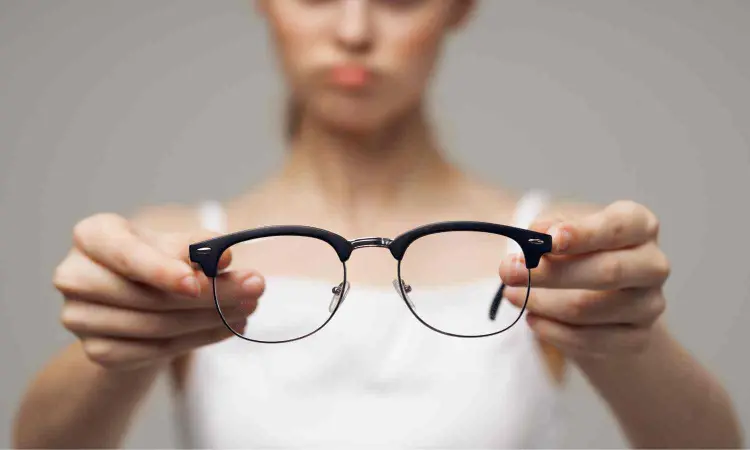- Home
- Medical news & Guidelines
- Anesthesiology
- Cardiology and CTVS
- Critical Care
- Dentistry
- Dermatology
- Diabetes and Endocrinology
- ENT
- Gastroenterology
- Medicine
- Nephrology
- Neurology
- Obstretics-Gynaecology
- Oncology
- Ophthalmology
- Orthopaedics
- Pediatrics-Neonatology
- Psychiatry
- Pulmonology
- Radiology
- Surgery
- Urology
- Laboratory Medicine
- Diet
- Nursing
- Paramedical
- Physiotherapy
- Health news
- Fact Check
- Bone Health Fact Check
- Brain Health Fact Check
- Cancer Related Fact Check
- Child Care Fact Check
- Dental and oral health fact check
- Diabetes and metabolic health fact check
- Diet and Nutrition Fact Check
- Eye and ENT Care Fact Check
- Fitness fact check
- Gut health fact check
- Heart health fact check
- Kidney health fact check
- Medical education fact check
- Men's health fact check
- Respiratory fact check
- Skin and hair care fact check
- Vaccine and Immunization fact check
- Women's health fact check
- AYUSH
- State News
- Andaman and Nicobar Islands
- Andhra Pradesh
- Arunachal Pradesh
- Assam
- Bihar
- Chandigarh
- Chattisgarh
- Dadra and Nagar Haveli
- Daman and Diu
- Delhi
- Goa
- Gujarat
- Haryana
- Himachal Pradesh
- Jammu & Kashmir
- Jharkhand
- Karnataka
- Kerala
- Ladakh
- Lakshadweep
- Madhya Pradesh
- Maharashtra
- Manipur
- Meghalaya
- Mizoram
- Nagaland
- Odisha
- Puducherry
- Punjab
- Rajasthan
- Sikkim
- Tamil Nadu
- Telangana
- Tripura
- Uttar Pradesh
- Uttrakhand
- West Bengal
- Medical Education
- Industry
Recent advancements in treatment of age-related macular degeneration

Age-related macular degeneration (AMD) remains a leading cause of vision loss globally, with significant advancements in treatment options for both dry and wet AMD. As highlighted by Huang and colleagues, "Current therapies for dry AMD have limited effectiveness in halting the progression of geographic atrophy (GA), underscoring the need for innovative approaches".
One of the most notable breakthroughs is the FDA approval of pegcetacoplan and avacincaptad pegol, targeting the complement system to slow GA progression. Pegcetacoplan, a C3 inhibitor, reduced GA lesion growth by 19–22% in clinical trials, while avacincaptad pegol, a C5 inhibitor, showed a 35% reduction. These therapies address the inflammatory component of AMD, offering hope for a condition previously deemed untreatable.
For wet AMD, anti-VEGF therapies continue to dominate, but newer options like faricimab—a bispecific antibody targeting VEGF and angiopoietin-2—stand out. Faricimab allows extended dosing intervals (up to 16 weeks), reducing the burden of frequent injections. As Gao et al. note, "Combining complement inhibition with anti-VEGF therapy holds significant potential," exemplified by IBI302, a dual-targeting drug currently in Phase III trials.
Surprisingly, photobiomodulation (PBM) emerged as a non-invasive option for dry AMD, improving visual acuity by 2.4 letters in the LIGHTSITE III trial. Meanwhile, gene therapy (e.g., RGX-314) and stem cell-based treatments show promise but remain experimental.
These advancements not only refine existing treatments but also challenge traditional paradigms. For instance, the shift from monthly injections to longer-acting therapies could revolutionize patient care. However, challenges like retinal vasculitis with pegcetacoplan remind us of the need for cautious optimism.
In summary, the AMD treatment landscape is evolving rapidly, with novel mechanisms and improved delivery systems offering brighter prospects for patients. As research continues, the focus on combination therapy and personalized precision medicine may further transform outcomes.
Reference:
Shan Liu, Danyang Lv, Junran Sun, Huixun Jia, Fang Zheng, Felipe Pereira, Siddharth Narendran, Zhenyu Dong, Haiyun Liu, Shunxiang Gao, Peirong Huang, Recent Advancements in the Treatment of Age-Related Macular Degeneration, https://doi.org/10.1002/mdr2.70009
Dr Kamal Kant Kohli-MBBS, DTCD- a chest specialist with more than 30 years of practice and a flair for writing clinical articles, Dr Kamal Kant Kohli joined Medical Dialogues as a Chief Editor of Medical News. Besides writing articles, as an editor, he proofreads and verifies all the medical content published on Medical Dialogues including those coming from journals, studies,medical conferences,guidelines etc. Email: drkohli@medicaldialogues.in. Contact no. 011-43720751


